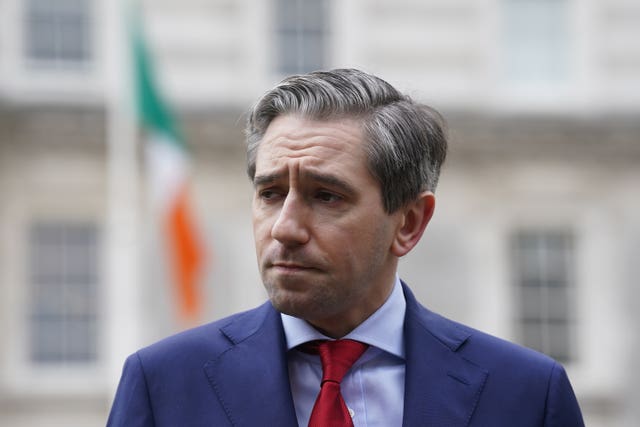Finance minister rules out wage subsidy scheme for firms affected by tariffs

By Cate McCurry, PA
The Minister for Finance has ruled out a wage subsidy scheme for sectors affected by US tariffs, saying it is not appropriate now.
Paschal Donohoe said he is not aiming to bring forward a proposal that would introduce supports similar to those brought in during the Covid-19 pandemic.
It comes as government ministers and businesses grapple with the 20 per cent tariffs imposed by US President Donald Trump.
“I don’t believe an economy-wide wage subsidy scheme in the way we had during the Covid pandemic would be appropriate,” he told RTÉ.
“I am hopeful that our efforts to engage with employers, in combined with the high level of employment that we already have here in Ireland, will offer a sufficient response back.
“But what we will do is we will evaluate what steps are necessary, but we need to avoid doing anything that has such a cost that it, in turn, could create other difficulties for us in the time ahead. We have to keep our economy safe.
“That means supporting and protecting jobs, and it means keeping our public finances safe.”
He said that the government will “engage” with businesses immediately impacted by the US tariff.
He said it will be on a firm-by-firm basis.
Earlier, a Fine Gael minister said that Tánaiste Simon Harris is to tell US secretary of commerce Howard Lutnick about the importance of Irish trade to America during their meeting later this week.
Patrick O’Donovan, Minister for Arts, Culture, Communications, Media and Sport, said that Mr Harris will be advocating for bilateral relations between Ireland and the US.
The Minister for Foreign Affairs and Trade is expected to meet the US secretary of commerce on Wednesday.
Mr Lutnick has been critical of Ireland’s tax arrangements, claiming it runs a trade surplus at America’s expense.
Mr Harris held a late-night call with Mr Lutnick a number of weeks ago, which the Fine Gael minister described as a “useful opportunity to exchange views”.
Speaking on RTÉ’s The Week In Politics programme, Mr O’Donovan, said the Tanaiste will be doing two things during his conversation with Mr Lutnick.
“He will obviously be articulating, as we all did in the United States during the St Patrick’s Day visit, the importance of bilateral relations and the importance of Irish trade to America,” he said.
The minister added that Irish companies employ tens of thousands of people across the United States.
“But the other thing you need to be doing is to be articulating a very simple message from the European Union, which is that this is a European Union competency, and we will negotiate on behalf of all the member states of the European Union.”
Mr O’Donovan was critical of the characterisation of the US as an “importing only nation” by some in America.
He said: “American politicians and some American media outlets have characterised the United States as some sort of importing nation only, and it doesn’t export anything, which, of course, couldn’t be further from the truth.
“They’re exporting to a block of 450 million people. We are not insignificant here. That’s the other thing that we’re being portrayed as, as some sort of insignificant group of countries, which, of course, we’re not.
“We are a very significant purchaser of global goods, and we have a number of free trade agreements with a number of different countries.”

Sinn Féin’s Claire Kerrane, who is the party’s children and disability spokesperson, said the government needs to prepare for a “worst-case scenario”.
She also backed calls from industry leaders for government supports to be put in place for workers and firms affected by US tariffs.
The Roscommon-Galway TD said: “We have to be very careful in terms of next step and what our next step is. I think more important than any of that, we have to do our proprietary work here to ensure that we are given supports, that supports are available, they’re on the table for businesses, that they’re ready to go tomorrow.
“We need that analysis, sector by sector, and we also need to ensure that we prepare for a worst-case scenario here in Ireland.”
She said a worst-case scenario would see the pharma and tech sector hit by tariffs.
“We need to work hand in hand with the North as an all-Ireland economy, because the bottom line is, we are dealing with a leader who does not make decisions based on facts and we saw that with the US trade document,” she added.
Labour’s enterprise, tourism and employment spokesperson and TD for Wexford, George Lawlor, said there is funding available through the national Social Insurance Fund to back such a scheme.
“We need to ensure that… the workforce feels that they have a future in the context of the companies that they’re working in,” Mr Lawlor told RTÉ.
“If we abandon them, we go back, if we look at what happened in the recession and when the economy was bankrupt, if we had been able to hold on to some of our construction workers, for instance, we probably wouldn’t have been in the position that we are.”






